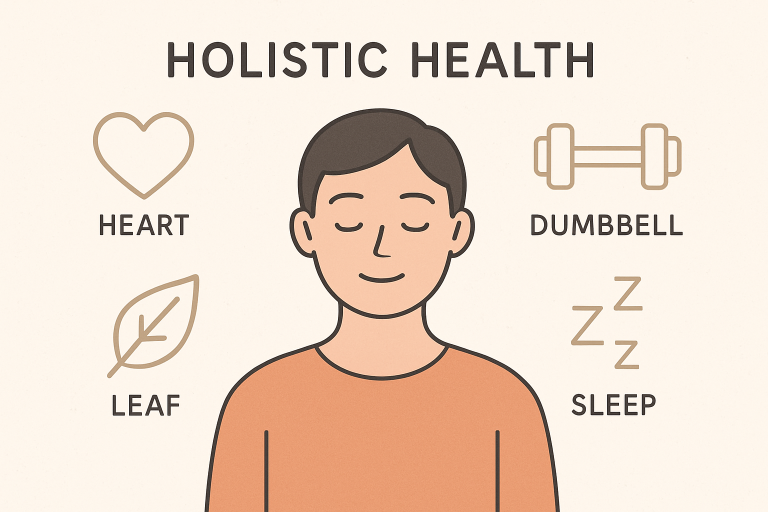Table of Contents
When navigating the path to better health, understanding all available options can make a meaningful difference in well-being. For many people, the wellness journey involves not just diet and exercise, but also addressing underlying issues that may be affecting their daily lives in subtle ways. One avenue that is increasingly recognized for its potential benefits is hormone therapy—a treatment that can offer remarkable support for people experiencing the effects of hormonal imbalance. Partnering with a hormone therapy specialist in Columbus, Ohio, can be a significant step for those seeking guidance on how hormone balance can contribute to both physical and emotional wellness. These specialists are equipped to help patients navigate the sometimes complex issue of hormone health through expertise, compassion, and evidence-based treatment plans.
Hormones regulate a wide range of bodily functions, including mood, metabolism, and sexual function, as well as bone strength and cardiovascular health. As hormone levels shift naturally with age, after pregnancy, or due to health conditions, imbalances can disrupt daily life—sometimes in ways that are initially difficult to attribute to hormones. Symptoms such as persistent fatigue, unexplained weight changes, night sweats, mood swings, or mental fog can make simple tasks challenging. Hormone therapy, when managed with professional oversight, can be an empowering addition to a patient’s wellness journey—helping restore balance, address troubling symptoms, and enhance overall quality of life for both women and men who are facing hormonal changes or deficiencies.
Understanding Hormone Therapy
Hormone therapy involves supplementing the body’s natural hormones to restore balance when levels decline or fluctuate. Most people are familiar with hormone therapy in the context of menopause, as many women seek relief from hot flashes, night sweats, and other menopausal symptoms through this treatment. For a comprehensive overview of how hormone replacement therapy can support women during menopause, see this U.S. News article. However, hormone therapy also offers solutions for individuals experiencing andropause (commonly referred to as “male menopause”), thyroid disorders, and other forms of hormonal dysfunction that can occur at any age. This makes it relevant not just for aging populations but for younger individuals struggling with hormone-related health concerns as well.
The therapy can take several forms, ranging from oral pills and transdermal patches to topical gels, creams, or periodic injections, depending on the type of hormone involved and an individual’s unique symptoms, preferences, and medical history. A thorough evaluation is foundational. Medical professionals typically assess a person’s lifestyle, stress levels, daily habits, symptoms, and overall health before recommending a tailored approach. This customization is important not only to address the symptoms but also to address the root causes and associated health risks. When thoughtfully prescribed, hormone therapy can address deficiencies that create uncomfortable or potentially risky symptoms, improving energy levels, sleep, sexual health, and mental clarity for many patients.

Benefits of Hormone Therapy
- Alleviation of Menopausal Symptoms: Hot flashes, night sweats, irregular sleep, and vaginal discomfort can disrupt everyday life and relationships. For many women, hormone therapy reliably relieves these symptoms, restoring comfort and improving daily function. According to the Mayo Clinic, hormone therapy is a well-studied option that can effectively reduce these menopausal symptoms and improve quality of life. The improved sleep quality and reduced discomfort at night can also have a ripple effect on mood, productivity, and relationships during the day. Hormone therapy can be life-changing for those whose symptoms are severe or persistent.
- Bone Health: Estrogen and other hormones play a crucial role in maintaining bone density. As estrogen levels decrease during menopause or due to certain health conditions, bones can become brittle and more prone to fractures. Replenishing estrogen through hormone therapy can help prevent or slow the onset of osteoporosis and related fractures, particularly for postmenopausal women. Maintaining bone health is crucial for maintaining mobility and independence later in life, as fractures can significantly impact quality of life and recovery time.
- Mood and Cognitive Support: Fluctuations and deficiencies in hormones often impact more than just the body—they also affect the mind. Many individuals report enhanced mood stability, clearer thinking, improved memory, and a reduction in “brain fog” when hormone balance is restored. This can support emotional resilience and quality of life, especially during periods of transition or stress. With greater mental clarity and mood stability, individuals often find themselves more engaged and motivated in their professional and personal lives.
- Cardiovascular Health: When started at the right time, typically around the onset of menopause, estrogen therapy has been shown to support heart health by regulating cholesterol levels and maintaining flexible, healthy blood vessels. This, in turn, helps lower the risk of heart disease—a leading cause of mortality, especially in women as they age.
Integrating Hormone Therapy into Your Lifestyle
Successful hormone therapy is most effective when it’s combined with long-term healthy lifestyle changes. A thoughtful approach to lifestyle, including nutrition, physical activity, stress management, and sleep, can significantly enhance the results and overall benefits of hormone treatment. A balanced diet rich in whole grains, colorful fruits and vegetables, lean proteins, and healthy fats provides the essential vitamins and minerals necessary to support the body’s hormone production and metabolism, while also contributing to a sense of well-being and increased stamina. These nutrients help the body process hormone supplements and support cellular function for optimal health.
Regular exercise is another cornerstone of hormone health and overall wellness. Weight-bearing and resistance activities, such as walking, yoga, pilates, or strength training, foster both bone strength and cardiovascular health, while also supporting mood and energy levels. Greater muscle tone, improved posture, and increased energy are common benefits for those who commit to regular physical activity. Even moderate activities, such as brisk walking two to three times a week or gentle yoga, can yield significant long-term benefits in both preventing chronic disease and reinforcing the positive effects of hormone therapy.
Managing stress is crucial for maintaining hormonal health, as chronic stress can disrupt the delicate balance of various hormones, including cortisol, insulin, and sex hormones. Mindfulness practices such as meditation, deep breathing exercises, or yoga have been shown to decrease stress hormone levels and promote a greater sense of calm and control. Cultivating hobbies, connecting with loved ones, and ensuring regular downtime can all contribute to lower baseline stress, making it easier for hormone therapy to support overall equilibrium.
Prioritizing sleep through good sleep hygiene habits has a direct impact on hormonal regulation and the body’s ability to recover and recharge. Setting a consistent bedtime, reducing screen time before bed, and following a relaxing pre-sleep routine can help the body maintain natural hormone rhythms and optimize therapy outcomes. Quality sleep also improves mood, cognitive function, and immunity, all of which are crucial during periods of hormonal transition or treatment.
Considerations and Safety
Although hormone therapy presents substantial benefits to many, safety and individualized care are paramount for achieving the best outcomes. Not everyone is an ideal candidate for hormone therapy, and specific medical histories—such as a personal or family history of blood clots, breast cancer, or heart disease—may influence whether this therapy is appropriate. This makes it essential to work closely with a qualified healthcare provider who will take the time to review your medical history, regularly evaluate your progress, run appropriate screenings, and adjust treatment as needed based on your body’s response.
Therapy is never one-size-fits-all, and open communication is the foundation of safe and effective treatment. By candidly discussing your symptoms, personal concerns, and health goals with your provider, you empower them to create a personalized plan that best supports your long-term well-being. Regular follow-ups help your provider monitor your progress, address any side effects, and ensure that the therapy continues to meet your evolving needs over time.
Conclusion
Hormone therapy is a powerful tool for those seeking balance, relief, and renewal on their wellness journey. With the proper support—including a trusted medical professional and healthy lifestyle habits—hormone therapy can help restore physical comfort, strengthen resilience, and foster lasting well-being. Understanding your options, partnering with experts, and making informed decisions is the path toward a healthier, more vibrant life. By taking a holistic approach that incorporates both expert guidance and lifestyle modifications, you can maximize the benefits of hormone therapy and experience an enhanced sense of overall well-being.






